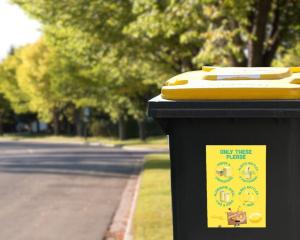Otago Regional Council chairwoman Cr Gretchen Robertson said the council should develop region-wide policy to protect a wider range of wetlands than required by national environmental standards.
The council should draft policy for its forthcoming land and water plan consultation that controlled activities such as cultivation and earthworks, wide-spread herbicide use, and inundation and drainage in areas not protected by national rules.
It also should extend stock exclusion rules for so-called "natural inland wetlands" beyond cattle, pigs, and deer to all heavy stock.
"Wetlands are really special, as we know, they are thriving biodiverse regions, they are also kidneys that filter out contaminants before they get to our other waterways," Cr Robertson said.
"They also provide really important resilience characteristics as well.
"They maintain an even flow of water in high flows and also release water during low flow conditions too.
"They are really important natural features."
Over time, New Zealand had lost 90% of its wetlands already.
The cost of not protecting what remained was a cost that was going to increase exponentially, she said.
Only Crs Gary Kelliher and Michael Laws voted against her at yesterday’s council meeting.
Cr Laws said he would not endorse the policy direction when the council had not considered its impact on existing farming or horticulture operations, including how many operations were likely to be affected and the likely costs.
Cr Kelliher said the discussion at the council seemed to be heading down a path of "we’ve only got a couple left and we’ve got to save them at all costs".
"I think it actually steps us too far away from reality and will be massively opposed by the community, who are actually out there doing a good job at the moment."
Cr Kate Wilson questioned why the council had not gone out to the community and asked who had a wetland and was happy to have it protected.
She said a lot of the wetlands that still existed, existed because "people are really proud of them".
In the same way a city council might have a schedule of protected trees, the council could have a schedule of protected wetlands where landowners had volunteered to protect them, she said.
A staff report said central government rule changes late last year for managing wetlands had pushed the council’s wetlands mapping work out to 2024-25.
For council to establish which of its previously mapped wetlands met the definition of natural inland wetlands — wetlands that had less than 50% exotic pasture content — site visits were required to confirm the previous desktop work.
Nevertheless, council policy and science general manager Anita Dawe said there was a legal requirement that the council avoid further loss of "extent or values" of wetlands, generally.
Rules for a wider range of wetlands meant there would be some activities where people would need a consent.
"If they could undertake the activity in a way that did not result in the loss of extent of wetlands, then they would get a consent."












